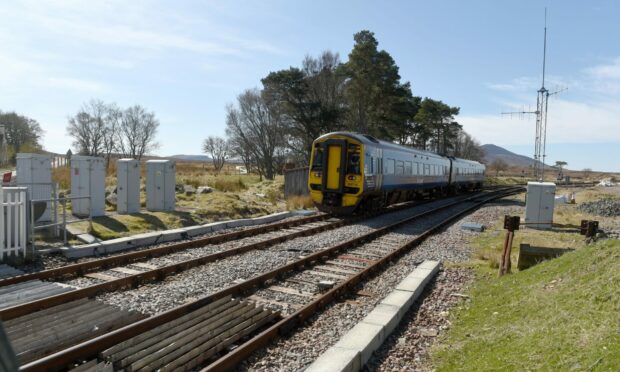Northern Scots should brace for more travel disruption as the planned RMT strike will go ahead next week after talks with train operators and Network Rail fall through.
Talks continued to the eleventh hour on Saturday, June 17, to try and prevent a nationwide strike that would cause significant travel disruption across the UK.
Worker’s union RMT was communicating with 13 different train companies and Network Rail over pay and conditions, which have now fallen through.
It means strike action will go ahead on Tuesday, June 21, with strikes planned for the following Thursday and Saturday.
While three days are outlined for strike action, there will likely be travel chaos every day between June 21 and 25.
It comes as ScotRail were able to resolve their own pay dispute with driver’s union Aslef.
‘Expect significant disruption to services.’
However, services across Scotland will still be severely impacted.
This is due to Network Rail workers’ involvement in new strike action, which is responsible for safety and signalling across most of the Scottish railway.
Earlier this week it was confirmed that if strike action went ahead no services would run north of the Central Belt.
This included no services between Aberdeen and Inverness, nor from either city down south to Glasgow and Edinburgh.
Limited services will be in place for travellers between Glasgow and Edinburgh, but that is all for the whole of Scotland.
This will negatively impact communities and people who rely on trains to commute to Aberdeen or Inverness from places such as Dingwall, Elgin and Huntly.
RMT general secretary Mick Lynch said: “Despite the best efforts of our negotiators no viable settlements to the disputes have been created.”
No trains north of the Central Belt.
David Simpson, ScotRail Service Delivery Director, said: “It is very unfortunate to see such widespread disruption across the whole of the Great Britain rail network and we know this will be frustrating for ScotRail customers.
“Regrettably, this strike action by RMT members of Network Rail means that we will not be able to operate the vast majority of our services during the period of strike action.
“Customers should expect significant disruption to services next week, including on the days between strike action.”
Inverness councillor Ian Brown raised the issue that not only are passengers in the north affected but freight travelling up to Inverness will be impacted.
He said: “My concern is that after the three days of strikes it will carry on and then it becomes a major problem for anyone wanting to travel anywhere.
“For Inverness it’s going to be bad. I can see it impacting longer than the three days because that will have an impact on freight as well.
“For the Highlands, a lot of freight comes up by rail, so you cant just swap that onto the road immediately. Plus we don’t want roads clogged with heavy lorries again.”
Aberdeenshire East MSP Gillian Martin said: “The rail strikes that will affect the north-east and Scotland as a whole week are not the result of a ScotRail dispute.
“It is a UK wide dispute with the Tory-led UK Government reserved Network Rail and other train operating companies.
“This will cause huge disruption for those who rely on the train to access transport and get to work as well as impacting businesses who rely on people commuting in to work, particularly the hospitality industry.”
Aberdeenshire MP, Andrew Bowie, said: “Unilateral strike action like this, which Labour and the SNP have refused to condemn, will only leave people unable to get to work.
“During this cost of living crisis, hurting the economy and the future of the railway makes absolutely no sense.
“We’re all looking forward to stability of service north and south of the border.”
To find out how the strike impacts your journey visit the ScotRail website.

Conversation